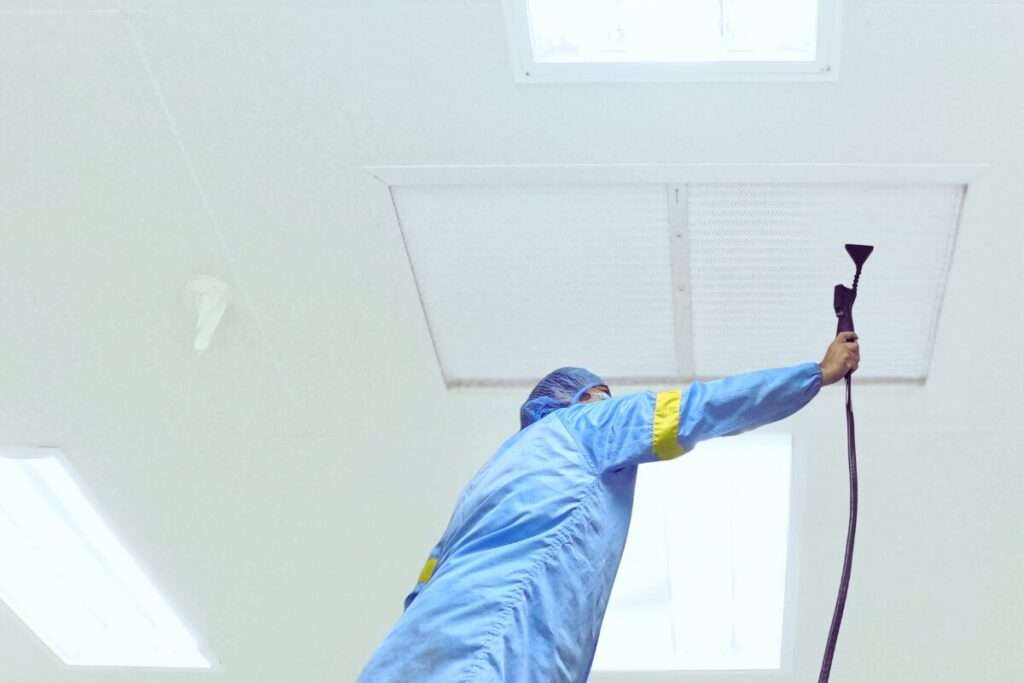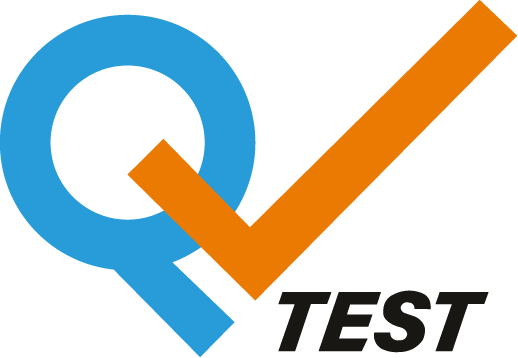Cleanroom Testing
and Certification
Your trusted partner for comprehensive cleanroom testing and certification, ensuring compliance with global standards and peak operational efficiency.
What We Do
At QV TEST, we specialize in demonstrating that your cleanroom systems operate to the highest international standards. Our meticulous testing ensures air quality, contamination control, and overall system integrity.
Cleanroom Performance: Primary Tests, Secondary Tests, and HVAC Integration
A cleanroom’s effectiveness depends on more than walls, ceilings, and HEPA filters. It relies on a comprehensive system of testing, validation, and engineering controls that guarantee particle-free environments. To achieve this, industries such as pharmaceuticals, biotechnology, healthcare, and semiconductor manufacturing must align their facilities with international standards like ISO 14644 and NEBB guidelines, ensuring that both Primary Tests and Secondary Tests are consistently performed.
In this article, we explore how Cleanroom Primary Tests, Secondary Tests, HVAC Systems, and Dust Collector Systems work together to maintain clean environments that pass regulatory audits and ensure safe, reliable production.
Cleanroom Primary Tests: Foundation of Validation
Primary Tests are the essential procedures required to validate and classify a cleanroom according to ISO standards. They provide the core data used to confirm compliance. Some of the most critical primary tests include:
Airflow Velocity and Uniformity Test – ensures that supply air moves with the correct speed and maintains consistent direction.
HEPA Filter Installation Leak Test – verifies that all filters are intact and free of leaks, preventing particle ingress.
Airborne Particle Count Test – determines the cleanroom classification by measuring particles of specified sizes per cubic meter.
Airflow Volume Test – confirms that sufficient clean air is being supplied to dilute and remove contaminants.
Room Pressurization Test – checks pressure differentials between clean and less-clean zones to control contamination migration.
Without passing these primary tests, no cleanroom can be certified or considered compliant with GMP, FDA, or ISO standards.
Cleanroom Secondary Tests: Enhancing Reliability
While primary tests validate the essential functions, Secondary Tests provide additional assurance and performance insights. These are often user-optional but highly recommended to ensure long-term efficiency and safety. Key secondary tests include:
Recovery Test – measures how quickly a cleanroom returns to cleanliness levels after contamination.
Temperature and Humidity Uniformity Tests – ensure consistent environmental conditions that protect both products and personnel.
Sound and Vibration Tests – safeguard sensitive equipment from external and internal disturbances.
Lighting Level Tests – confirm proper illumination for operational efficiency and safety.
Air Change Rate (ACH) Test – evaluates how many times per hour the cleanroom air is replaced.
Together, these secondary tests not only strengthen compliance but also improve energy efficiency and operational confidence.
HVAC System: The Backbone of Cleanroom Control
The HVAC system plays the most crucial role in cleanroom performance. It is responsible for delivering clean, conditioned air while maintaining strict control over pressure, temperature, and humidity. A well-designed HVAC system must achieve:
Proper Airflow Distribution – moving air from clean to less-clean zones to prevent cross-contamination.
Consistent Temperature and Humidity – essential for product stability in pharmaceutical and biotech applications.
Energy Efficiency – optimized systems reduce operational costs without compromising compliance.
Regular validation of HVAC systems through airflow mapping, duct leakage testing, and pressurization checks ensures reliability and helps facilities maintain compliance with both ISO and GMP standards.
Dust Collector System: Supporting Contamination Control
While HVAC systems manage overall air cleanliness, the Dust Collector System provides targeted removal of airborne particulates in high-risk processes. Industries such as pharmaceutical manufacturing, laboratories, and food production benefit from dedicated dust collectors that:
Capture fine particles generated during production.
Protect workers from inhalation risks.
Prevent dust accumulation that could jeopardize cleanroom classification.
Improve overall efficiency of HVAC systems by reducing particulate load.
When integrated with cleanroom HVAC systems, dust collectors act as a secondary shield, ensuring that air supplied to the cleanroom meets the strictest contamination control requirements.
The Interconnected Framework of Cleanroom Assurance
To summarize, a cleanroom is not simply a controlled room with filters. Its effectiveness hinges on a layered validation framework:
Cleanroom Primary Tests – validate essential compliance.
Cleanroom Secondary Tests – enhance performance and reliability.
HVAC System – delivers clean, conditioned, and controlled air.
Dust Collector System – captures localized contamination and supports HVAC efficiency.
By aligning these components, facilities can achieve not only regulatory compliance but also operational excellence.

Precision Airflow Analysis
Our advanced techniques map and verify airflow patterns, ensuring every corner of your cleanroom maintains optimal cleanliness.
Our Comprehensive Testing Services
QV TEST provides a full spectrum of cleanroom testing and certification services, categorized into primary and secondary tests to meet all your regulatory and operational needs.
Primary Tests: Classification Essentials
- Airflow Velocity & Uniformity
- Airflow Volume & Uniformity
- HEPA Filter Installation Leak Tests
- Airborne Particle Count Classification
- Room Pressurization Test
These tests are crucial for cleanroom classification as per ISO 14644.
Secondary Tests: Enhanced Performance
- Airflow Smoke Pattern Tests
- Recovery Tests
- Lighting Level & Uniformity
- Temperature & Humidity Uniformity
- Air Change Rate (ACH) Tests
Optional tests for particle, air movement, and ancillary systems.
Specialized System Certifications
- HVAC System: AHU Testing
- Dust Collector System Certification
- Temperature Mapping Studies
- Bio Safety Cabinet (BSC) & LAF
- ETO Sterilizer Validation
Ensuring specific equipment operates within precise parameters.
Industry Solutions Tailored to Your Needs
We provide specialized cleanroom testing and certification services across a diverse range of industries, ensuring compliance and operational excellence for your unique requirements.
- Bio/Pharmaceutical Industry
Strict adherence to GMP standards for drug manufacturing and research facilities.
- Medical Device Manufacturing
Ensuring sterile environments critical for medical device production and assembly.
- Hospitals & Healthcare
Maintaining safe and controlled environments for operating rooms and critical care units.
- Food & Beverage Industry
Preventing contamination in food processing and packaging environments.
- Electronics Industry
Ultra-clean conditions for semiconductor and microchip manufacturing.
- Data Center Environments
Controlling airborne particles to protect sensitive IT infrastructure.
Ready to Certify Your Cleanroom?
Let’s discuss your project and provide a tailored estimate for cleanroom design, construction, validation, and maintenance, compliant with ISO 14644, GMP, and FDA regulations.
